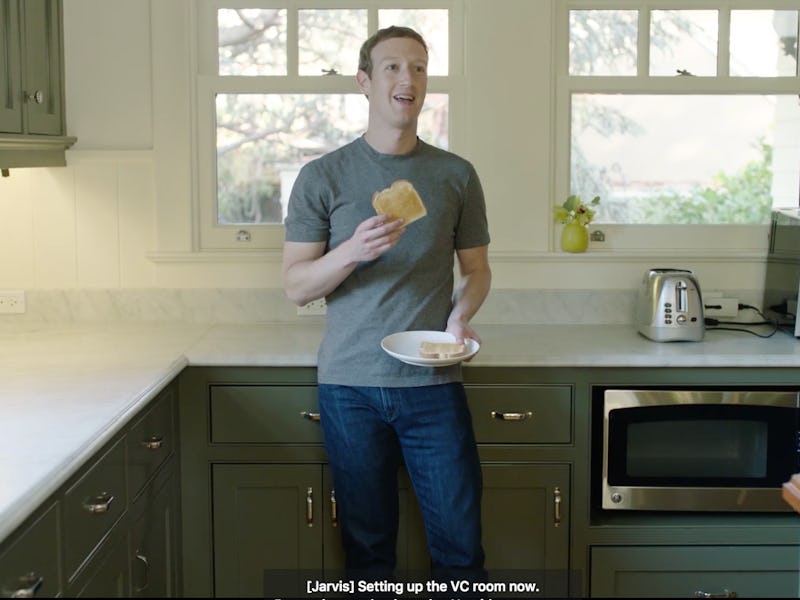Elon Musk Says Mark Zuckerberg's Jarvis A.I. Isn't A.I.

Elon Musk and Mark Zuckerberg both get comparisons to Tony Stark, but only one of them actually has a pet A.I. named Jarvis. Except Musk, a noted critic of wanton A.I. says that Zuckerberg’s Jarvis isn’t really an A.I. at all, dismissing the Morgan Freeman-voiced home assistant as nothing more than a really expensive light switch.
Musk’s newest statement comes from a Vanity Fair feature, on the billionaire CEO’s attitudes toward the coming A.I. revolution. Zuckerberg claims Jarvis is an all in one A.I. solution for personal organization and smart home management, touting its ability to coordinate a user’s whole life with no need to micro-manage its settings. Musk says it’s nothing new.
“I wouldn’t call it A.I. to have your household functions automated,” Musk told the magazine. “It’s really not A.I. to turn the lights on, set the temperature.”
The disdain in Musk’s statement is telling, given that he has yet to actually do anything with the artificial intelligence projects about which he’s so fond of talking. Musk doesn’t think that keeping the temperature in a house normalized is a truly artificially intelligent task, which is true, but also an unfair assessment. Jarvis may not be a particularly groundbreaking application of machine learning techniques, but it’s every bit as much an artificial intelligence as the products Musk himself has helped support through funding.
The reality is that Jarvis doesn’t just turn the lights on and off, or adjust the thermostat, but learns how to do those things and more according to the wishes and behaviors of its owners. That’s what makes an A.I. by the modern definition, the definition Musk has been happy to embrace up until now: the ability to adapt and become better suited to a user through the application of machine learning algorithms, with no direct human intervention necessary. By this measure, Jarvis is undeniably an artificial intelligence product.
Below, watch as Mark Zuckerberg pretends to be sleepy, explains Jarvis, eats toast in an impossibly wrong way, then explains Jarvis some more.
What Musk means is that Jarvis isn’t a particularly impressive A.I., by our modern standards, just a very nice packaging of individually non-shocking achievements. From smart calendar handling to learning your work schedule and optimizing home temperature accordingly, there’s no question that Jarvis is doing things society (and Musk) has previously agreed to call artificially intelligent. His comment to Vanity Fair hints at the fact that the standards for actually being an A.I. are changing, at least to the extent that Musk feels he can get away with that sort of hypocritical swipe at a rival public-facing billionaire.
Of course, Musk isn’t the only one who can sling passive-aggressive barbs through the media. Zuckerberg has previously taken on Elon’s claims about a coming robot apocalypse, though that’s a less pointed attack given that Musk isn’t staking the future of any of his companies on a perception of having true A.I.
This is a consistent distinction between the two rich technologists. Zuckerberg thinks in terms of small-scale applications, and tends not to worry too much about the long-term, cascading consequences. This is what gave us poorly thought out initiatives like Facebook’s early attempts at news aggregation. On the other hand, Musk always thinks big and long-term — which is easy for him to do, since he has never actually been a part of a company that has attempted to build a complex A.I. for commercial use. His statements tend to gloss over just how great the distance is between current technology and the threshold of problem A.I. On the other hand, Zuckerberg could well be equally glossing over how small that distance is, and how quickly we might cross it.